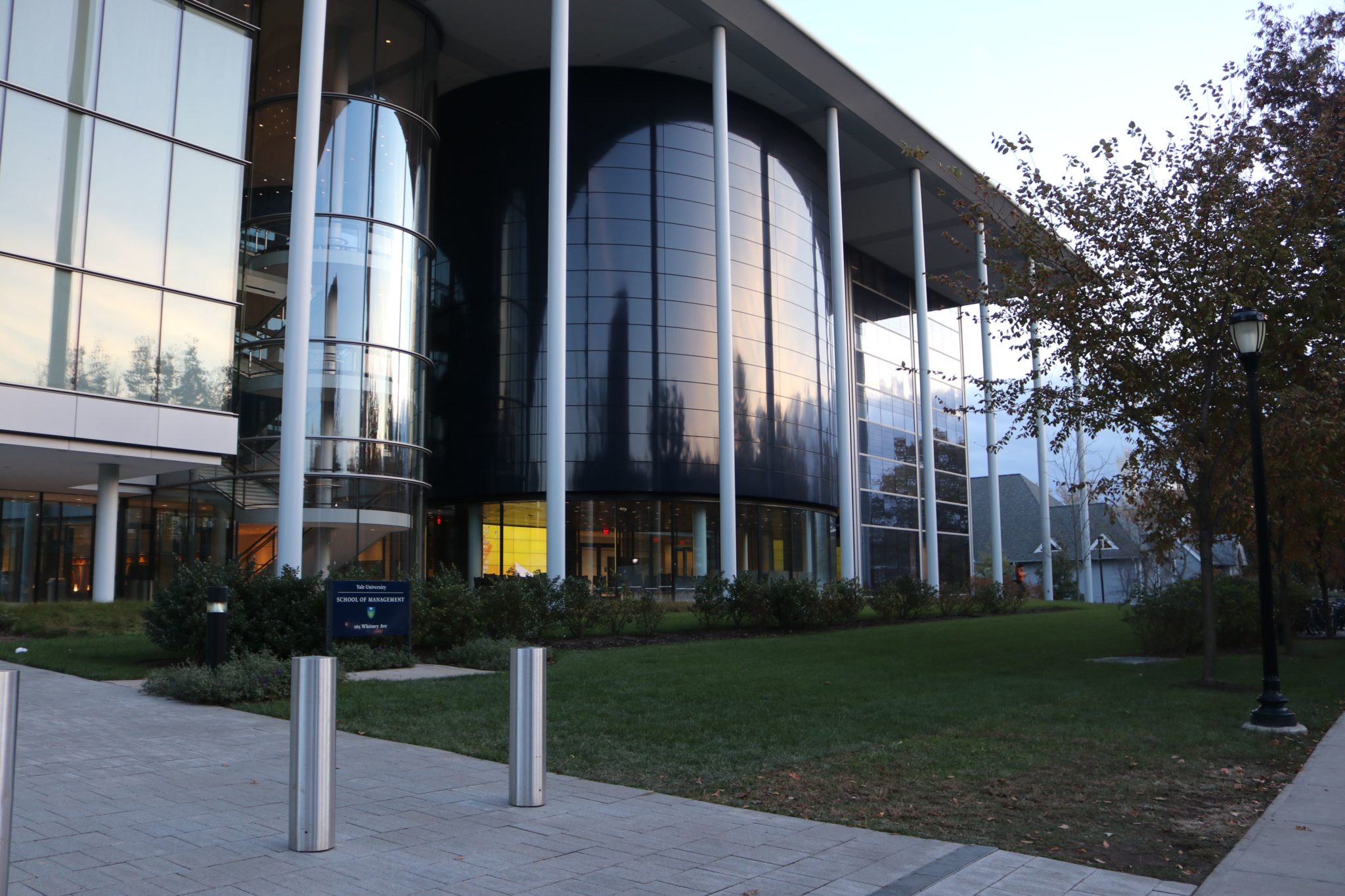
Kai Nip
In the spring of 2014, an average of three birds per day struck the transparent Evans Hall — the building for the School of Management, which has an exterior facade constructed from 2.25 million pounds of glass. Four years after the building’s inauguration, the problem persists, but the School is now partnering with the Peabody Museum of Natural History to formally track bird strike data and better address the issue.
Previously, SOM has only received “occasional anecdotal estimates” of bird strike frequency from the custodial supervisor of the building, according to SOM Director of Facilities Planning Bob Saidi. However, after consulting with Peabody Vertebrate Zoology Collections Manager Kristof Zyskowski and American Bird Conservancy bird strike expert Dr. Christine Sheppard, SOM facilities decided to formally track the frequency and location of the strikes along with the species involved, Saidi said. He noted that the program began after the school’s student government raised concerns about bird deaths in fall 2017.
Saidi said that the program started about a year ago, but it has only produced “reasonably reliable data” over the past six months. The School hopes to use the data to focus prevention resources on the most impacted areas of the building.
“Good information is needed to make good decisions,” Saidi said. “We are hoping that by gathering comprehensive data, we can get an accurate picture of the magnitude of the problem.”
The SOM custodial staff usually finds and picks up the birds around the building and then places them in plastic bags, Saidi said. Then, they note the date and location of the strike on a reporting form with an outline of Evans Hall and send it across the street to the Peabody, according to Peabody Education Coordinator Jim Sirch. Once the bird arrives at the Peabody, the team identifies its species and enters it into a database along with the other information gathered from the scene.
Saidi noted that bird strikes rose moving into the migration season — when birds were flying southward for the winter. He added that the bird strikes were “rare” during the summer, but in one day this fall, SOM experienced four strikes. More birds have struck the back side of the building than any other side. Saidi attributes this phenomenon to the abundance of trees and other vegetation close to that side of the building.
In addition to the data-gathering efforts, the School is seeking a permanent answer to the issue by “monitoring nationwide research efforts to develop solutions that might alleviate the bird strike problem,” Saidi said.
He added that existing solutions mainly involve applying window film products, which create barriers “visible to both birds and humans.” But so far, the School has not used these, as applying them would “result in a noticeable change in the building’s appearance,” according to Saidi.
“The net result of all of this, regrettably, is that no one seems to be closer to creating a solution that will protect the birds and preserve the transparency of our vast expanses of glass,” he said. “I wish we had better news to report, but we will continue to monitor developments in this field, and we will be willing to try one if someone comes up with a suitable idea.”
Sirch said that architects and planners for future glass buildings at the University have met with representatives from the American Bird Conservancy about possible glass treatments or types of safety glass for birds.
The Office of Sustainability receives information on bird collisions both on and off campus, said Amber Garrard, a senior manager there. Currently, the office shares this information with other people involved in campus planning and design.
Evans Hall is located at 165 Whitney Ave.
Asha Prihar | asha.prihar@yale.edu
Jose Davila IV | josedavilaiv@yale.edu







